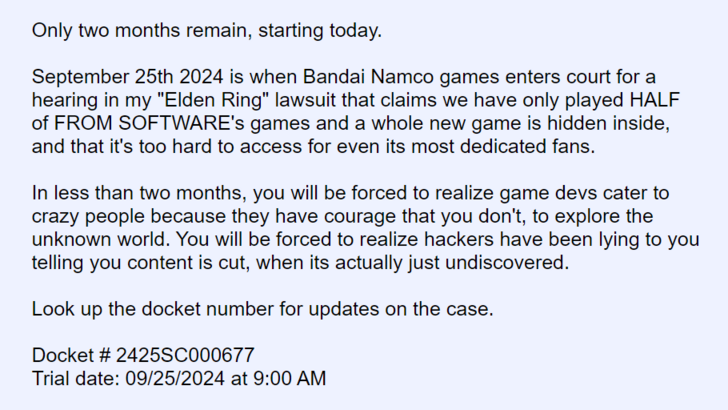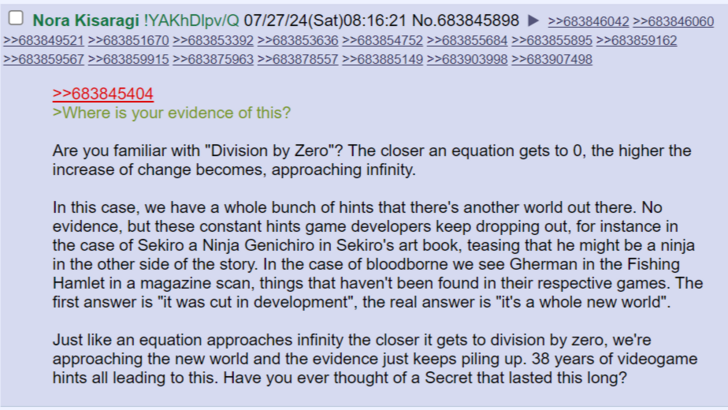Elden Ring Player's Lawsuit: A "Skill Issue" or Misleading Marketing?
An Elden Ring player, Nora Kisaragi, has filed a lawsuit against Bandai Namco and FromSoftware in Massachusetts small claims court. Kisaragi alleges that the developers misled consumers by concealing substantial game content, claiming a "whole new game… hidden inside" due to the games' high difficulty.

The lawsuit stems from Kisaragi's belief that FromSoftware intentionally obscures significant game content through its notoriously challenging gameplay. This claim is fueled by datamined content, which Kisaragi interprets as intentionally hidden features rather than cut content. The plaintiff cites vague references from FromSoftware's past works, such as mentions in art books and developer statements, as "constant hints" supporting their theory. Kisaragi's core argument is that players paid for inaccessible content without even knowing of its existence.

The lawsuit's viability is highly questionable. The plaintiff lacks concrete evidence, relying solely on speculation and interpretation of ambiguous statements. While Massachusetts small claims court allows individuals 18 and older to sue without an attorney, the judge will determine the case's merit. Even if the plaintiff were to successfully argue a violation of Consumer Protection Law by claiming deceptive marketing, proving the existence of a "hidden dimension" and demonstrating consumer harm will be extremely difficult. The potential damages awarded in small claims court are also limited.

Despite the low probability of success, Kisaragi's stated goal is not financial compensation but to force Bandai Namco to publicly acknowledge the existence of this purported "hidden dimension."

The gaming community largely views the lawsuit as absurd, given that dataminers would likely have uncovered such extensive hidden content. The presence of unused assets in game code is common industry practice, often resulting from development constraints, and doesn't necessarily indicate intentional concealment.

The outcome of this unusual lawsuit remains to be seen, but its highly speculative nature and lack of substantial evidence suggest a likely dismissal.















